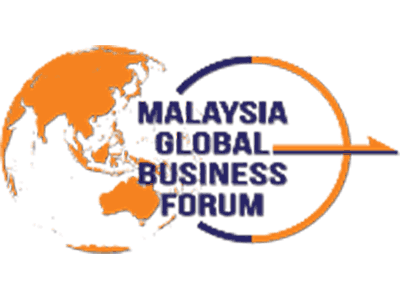
Nordin Abdullah speaking at the Stratcom Disaster Communication Forum held in Ankara, Turkiye from 25-26 April 2023. | NHA File Photo
The classic knee-jerk reaction is to say, fire the coach, change the leadership of associations, and reduce the funding till they start performing better. This kind of negative reinforcement may work for kindergarten children, but we are dealing with high-performance adults – individuals much further along in their psychological and professional development journey.
There is a need for a strategic shift in attitude and allocation if Malaysia is going to match its perceived vision of itself and the required image to be projected on the regional and global stage. How the nation competes, how an association competes and ultimately how an athlete competes is a function of the system that they are produced from.
Do we have an understanding of the competitive landscape in which our national sports association compete with other sports associations across ASEAN? In the first instance, each and every sporting association should have competitive information on their competitor associations. For example, how much money does each association have? How many resources are brought to bear including annual budgets, number of coaches, support staff, and the average number of fans at a game?
This matrix of data, economic data not just sporting data, should then be set against the medal tally. Taking a leaf out of Professor Daniel Johnson’s playbook, “It’s just pure economics,” whose economic medal prediction often reaches above 90 per cent accuracy for medal tallies at the Olympics. Who will be the hotshot economist in Malaysia who can make a name for themselves in this field?
Time is a critical factor in sports development. It takes a minimum of 10 to 15 years to develop a high-performance athlete depending on the sport – taking into consideration peak performance age and the average career span for that particular sport. This means sports development needs to be a long-term affair not just a two-year project.
The resources required over the high-performance phase of an athlete’s career required to allow him or her to perform at a medal-winning pace, together with the business intelligence of what competitors from other countries are allocated will allow for meaningful gap analysis and informed decisions to be made. The data required is beyond the performance data of other countries’ athletes.
On the national level, there is a need to understand the economic and social footprint of each and every sport. The sum value of a sports ecosystem in Malaysia needs to be known in detail so that output can be put into context. Looking at this data will allow the public and planners alike to know whether or not the country is performing well in any given sporting event.
The rationalisation and understanding of the competitive environment in which sportspeople operate must be a core competency of national sports bodies. That, together with deepening and widening the development pyramid while establishing clear pathways for athletes to succeed on the national, regional and international stages.
Those who have been at the coalface of sports development either as an athlete, coach or administrator will know that going to the next level requires resources. More coaching, better equipment, international competition exposure, better food, sports psychology and physiotherapy to name just a few. If a competitor has more, you are at a strategic disadvantage before the games even start.
At the same time, the exponential resources required for incremental improvement need to be understood. High-performance sports are the domain of the top half of the last one per cent with winning margins thinner the higher the level of competition. The final of the SEA Games men’s 100-metre saw a split of less than half a second between the gold medallist and the last finisher.
A country presents the nation’s best as a matter of pride and as a statement of national development – again, why economists can predict medal tallies.
Looking towards a sustainable and desired future, the answer is not less for those who did not do well; that is not going to help at all. The answer is more for all and extra for those who did well as a reward for success. The only rational and clear way forward will be a ‘balanced scorecard’ or ‘performance matrix’ that can be developed to understand the ‘money in, medals out’ equation.
This letter to the editor is written by Nordin Abdullah, Founding Chairman of the Malaysia Global Business Forum (MGBF) and EXCO for the Malaysia Cricket Association (MCA).
**This commentary was published in the following media: News Hub Asia, Glenreagh and The Star
Services
Stakeholder mapping, analysis, engagement and communication needs to be detailed to avoid business losses or even worse, a crisis. How can you do this effectively to prevent failure? ...
Data-driven business decisions have never been as crucial, especially in this era. MGBF leverages off, technology, experience and market presence to aid businesses in making accurate decisions. ...
MGBF provides comprehensive strategic advice and results-focused solutions to solve clients' problems in business-government relations so they can focus on their core business. ...
A critical business challenge is meeting the right decision-makers and potential buyers through the best channel and platform. How will you improve your business competency? ...
Upcoming Events
In this episode of 'A Working Lunch with Nordin', MGBF's Nordin Abdullah and regional commentator Eddin Khoo will discuss the biggest threats and opportunities for businesses as we look to manage change in the South China Sea.
This MGBF Roundtable will feature thought leaders form Japan, Australia, Singapore and Malaysia dealing with the critical issues of manipulation of public listed companies and government and their financial impacts.
A series of networking sessions with various business associations and trade organisations exploring high-value opportunities for business leaders and entrepreneurs looking to build the relationships that matter.
This integrated event will include a forum, dedicated business matching, site visits, a gala dinner and a round of golf. Aptly themed, the focus will be on regional food security issues and trends in the context of the supply chain, agriculture technology and trade regulations and policies.
MGBF In The News
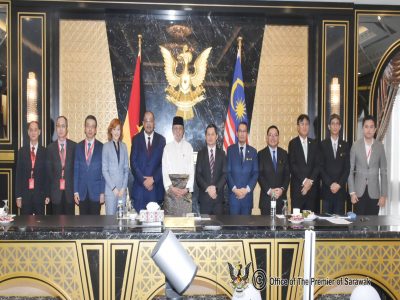
Planet QEOS and China Machinery Engineering Corporation (CMEC) are interested in investing RM10 billion to co-develop advanced Megawatt peak (MWp) agrovoltaic in Baram, to further boost Sarawak’s green energy initiative and food security. Sarawak Premier Datuk Patinggi Tan Sri Abang Johari Tun Openg was briefed on Friday by both the […]

Last week SPM results came out, 373,974 aspirants who have been waiting patiently over the last few months would now know their fate. Some 10,109 have received all A’s, the golden standard of academic success and the ticket to those looking to study the “more advanced” subjects in university. Proudly, […]

The classic knee-jerk reaction is to say, fire the coach, change the leadership of associations, and reduce the funding till they start performing better. This kind of negative reinforcement may work for kindergarten children, but we are dealing with high-performance adults – individuals much further along in their psychological and […]
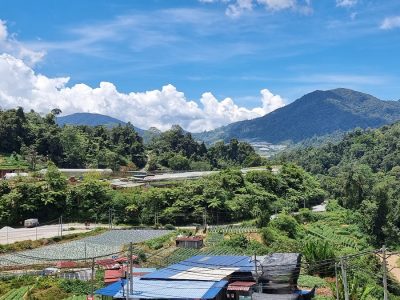
Since its earliest tea plantations in 1929, Cameron Highlands has grown to become a key player in the agricultural landscape of Malaysia, producing 40 per cent of all vegetables grown. Despite Malaysia shifting its economic focus away from agriculture, the industry remains imperative for food security and the livelihoods of […]

Although at first glance the travel industry and the agricultural sector appear to have nothing in common, they actually share more than meets the eye. The economic benefits of tourism to the agricultural sector can be multiplied several times over. “Tourism brings the end consumers closer to the source, which […]
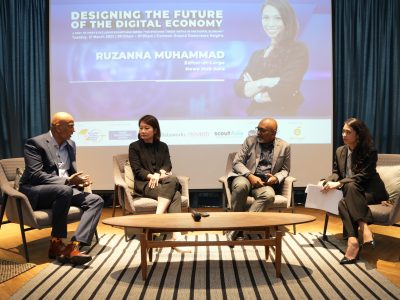
The Malaysia Global Business Forum (MGBF) recently held a high-level roundtable themed ‘Designing the Future of the Digital Economy’, attended by industry leaders and business associations. The guest of honour was Yang Berhormat Syerleena Abdul Rashid, the Member of Parliament (MP) for Bukit Bendera in Penang. The MP’s Special Session […]

The Malaysia Global Business Forum (MGBF) will be hosting a roundtable on ‘Designing the Future of the Digital Economy’ on 23 February 2023. It is the culmination of the first three MGBF Exclusive Roundtable Series titled ‘The Evolving Threat Matrix in the Digital Economy’ held throughout 2022. According to the […]
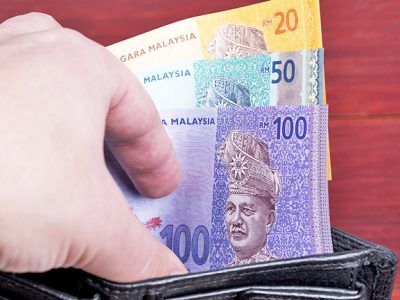
The Founding Chairman of the Malaysia Global Business Forum (MGBF), Nordin Abdullah, today spoke on Bernama TV’s leading English talk show, The Brief, hosted by Jessy Chahal, on the topic of a stable political reality and what that means for the Malaysian economy. Nordin said, “The first thing that it […]

More than 1,100 years ago, Muhammad ibn Musa al-Khwarizmi was developing the mathematical formulas that we know today as algorithms which now have become so intertwined with the business fortunes of global media giants and the very fabric of geopolitics. A series of recent high level international reports have revealed […]

KSK Land has been recognised by the Malaysia Global Business Forum (MGBF) for its role in attracting high net-worth individuals to Malaysia post-pandemic. The first challenge in investor attraction is “selling” the country. In the context of Asia, Malaysia is competing with some very established investment destinations. The second […]

Malaysia, in particular Kuala Lumpur, continues to position itself as a regional centre to do business, educate a family and enjoy a global lifestyle. One company, KSK Land, has taken the lead in positioning itself and the city of Kuala Lumpur as a property investment destination for the global citizen […]
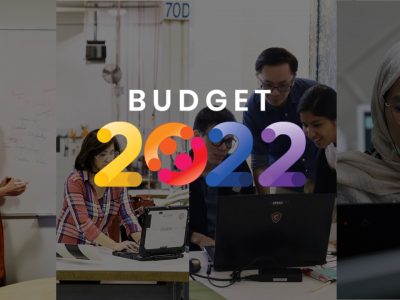
The upcoming budget represents an opportunity to build resilience in the critical sectors that will form the backbone of the country’s future-facing economic ambitions. This however needs to be achieved in the context of managing the community sectors most impacted by COVID-19 over the past two years. The Keluarga Malaysia (Malaysian Family) […]

Malaysia Global Business Forum (MGBF) has moved to support the creative economy as the overall economy moves into a recovery phase following the COVID19 pandemic. As a step in the direction of normalcy, the MGBF has agreed to host the art exhibition “I Know You’re Somewhere So Far” by one […]
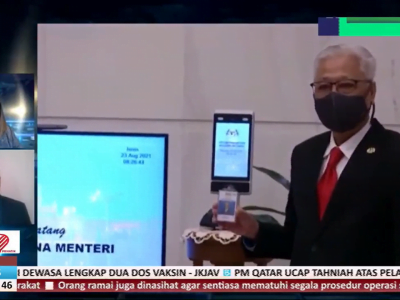
Congratulations to Datuk Seri Ismail Sabri Yaakob for taking up the mantle of the ninth prime minister of Malaysia. There is nothing normal about the situation; it could not have been scripted but it has kept the spectrum of media, mainstream and social, gripped. The first order of business for […]
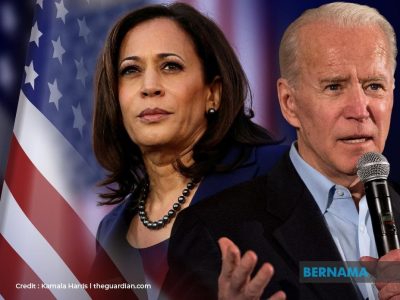
In a stirring speech to the nation, President Joseph R. Biden, Jr. stamped his brand of leadership on the presidency, in his first act as the 46th president of the United State of America, it signaled several shifts. Perhaps the weather was foreboding with snow falling before the ceremony that […]

KUALA LUMPUR, 6 July 2022 – As the global economy continues to deal with unprecedented levels of disruption caused by the pandemic and the conflict between Russia and Ukraine, the convergence of energy security and food security issues has become a front-of-mind issue faced by policy makers and consumers alike. […]

KUALA LUMPUR, 23 June 2022 — Malaysia Global Business Forum (MGBF) ties up with scoutAsia to ensure that businesses are equipped with deeper regional insights. The past two years has seen a massive shift in the way businesses are conducted with digitisation, digitalisation and automation continuously being adopted to improve […]

KUALA LUMPUR, 25 May 2022 – The Malaysia Global Business Forum (MGBF)’s exclusive roundtable on ‘Security Concerns in Critical Value Chains’ was held in a hybrid setting yesterday at the Eastin Hotel Kuala Lumpur. The guest of honour was Yang Berbahagia Tan Sri Dato’ Seri Rafidah Aziz, former minister of […]
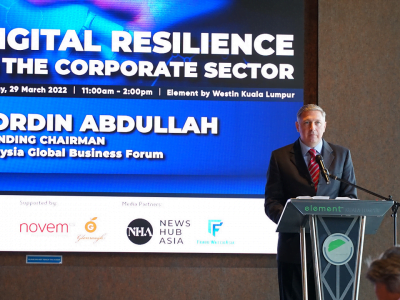
We live in the age of crisis. At the heart of any crisis is the threat of rapid change. Change too deep or too wide that the current coping mechanisms for an individual, corporation or government are unable to remain resilient. An unwelcome paradigm shift, like the proverbial spider, that […]

































